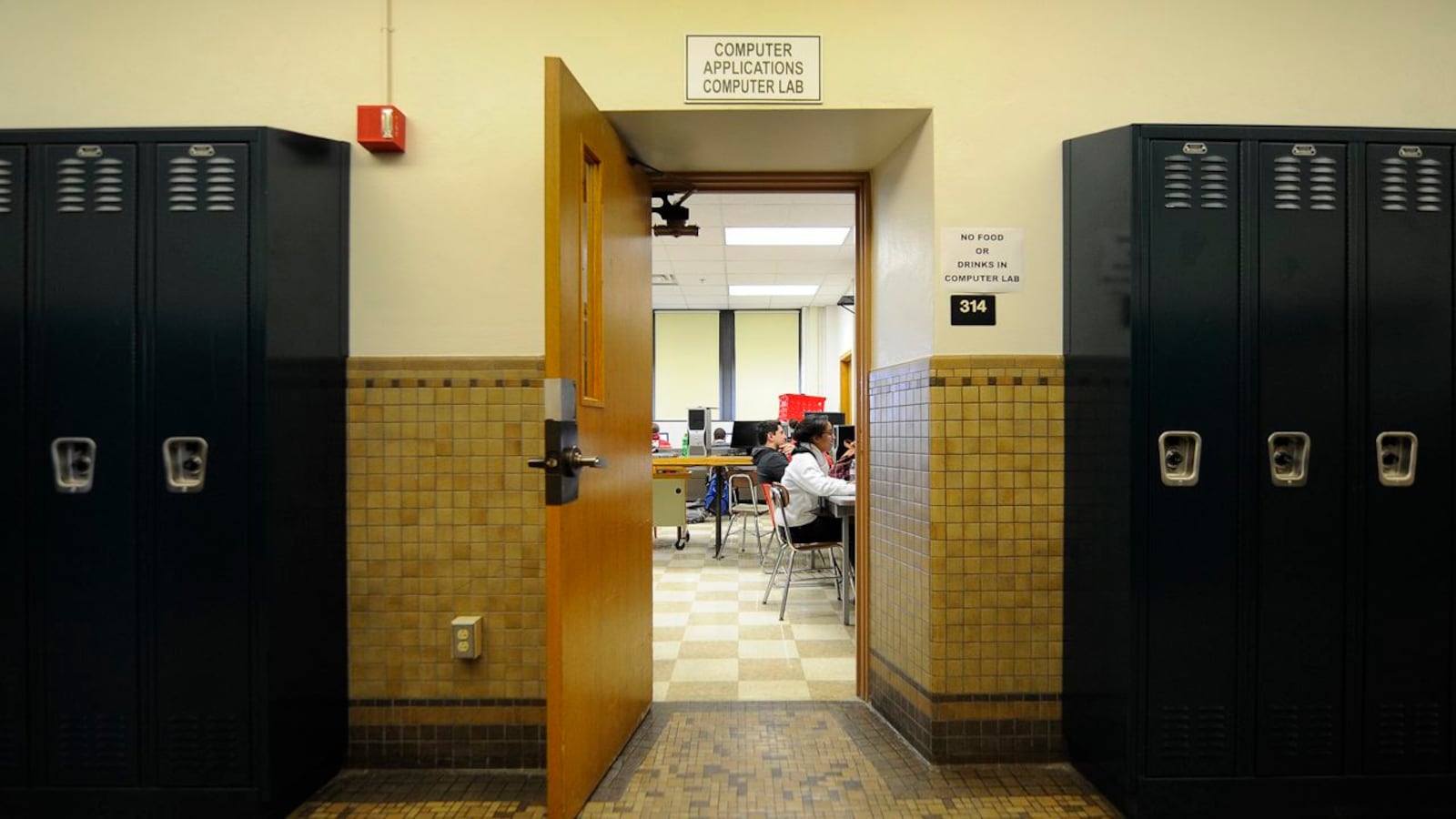Parents and educators pleaded with the Indiana State Board of Education on Wednesday to correct new proposed diploma options that could make graduating more for difficult for students with special needs and a state law that they argue could rob students of equal access to the high school diplomas that fit them best.
“By increasing the graduation requirements in math and science in both new (diploma) options, we are once again making it more difficult for students to earn their high school diplomas,” said Jeff Huffman, a Noblesville parent of a student with special needs. “Not every student is destined for college. Not every student needs to be proficient in Algebra and biology to get a good paying job.”
Students starting high school in 2018 would have three diploma options instead of four under a plan approved recently by the Commission on Higher Education — a “college and career ready” diploma, an “honors” diploma or a “workforce ready diploma.” Currently there are four diploma options: general, Core 40, Core 40 honors and career and technical honors diplomas. The new diplomas both include more credit hours and, in the first two cases, higher expectations for coursework.
“What we wanted to do is make sure we had academic rigor and we could streamline the process,” said Teresa Lubbers, Indiana’s commissioner for higher education. “We could, earlier, make this clear to students and families that this is what they’d need to do and actually make sure that while providing maximum choice for selection that you did this in a way that is providing structure as well.”
But by eliminating the general diploma, parents said, students with special needs might not get the support they need, and they might endure additional hardship as they work to complete the more specific, rigorous diploma.
“I hope you will send them back to the drawing board and include the current general diploma in this mix,” Huffman said. “It’s what’s best for students and what’s best for Indiana.”
Speakers at the meeting, including representatives from the Indiana School Counselors Association and members of the state’s advisory committee on special education, also called for inclusion of the general diploma in the new diploma offerings, as well as requiring schools to offer all diplomas so students, and parents, have more choices.
Indiana state law doesn’t require all school districts to offer all available diploma options. That means some districts might currently only offer the Core 40 diploma, suggested for students who want to go on to four-year colleges or professional fields, and not a general diploma, which is recommended for those seeking more basic jobs.
Students who earn a general diploma but attend schools that don’t offer it can be stuck can end up without a diploma, instead earning a certificate that doesn’t demonstrate significant academic progress. That can leave them unprepared for future jobs that want to see those academic accomplishments. Certificates can vary district by district, student by student.
However, Lubbers suggested that for the small percentage of students who qualify for the certificate, the state could possible change it to make it more specific, thus communicating a more defined set of skills to employers. She said she heard from employers that the general diploma was not a “good proxy for what students should know.”
The remarks from parents and educators prompted state Superintendent Glenda Ritz to call a special meeting of the board in October to spend more time discussing the diplomas. A final decision on the diplomas must be made by the board in December.
“I wholeheartedly feel that (students) should be afforded the right to have a workforce-ready diploma,” Ritz said.
Board member Vince Bertram agreed, although that move would require a change in state law, Ritz said.
“If we are going to establish these diplomas for our students … we need to give them access to these diplomas,” Bertram said. “While I fully appreciate and support local autonomy … to not make the workforce-ready diploma available to students is, I think, irresponsible.”

